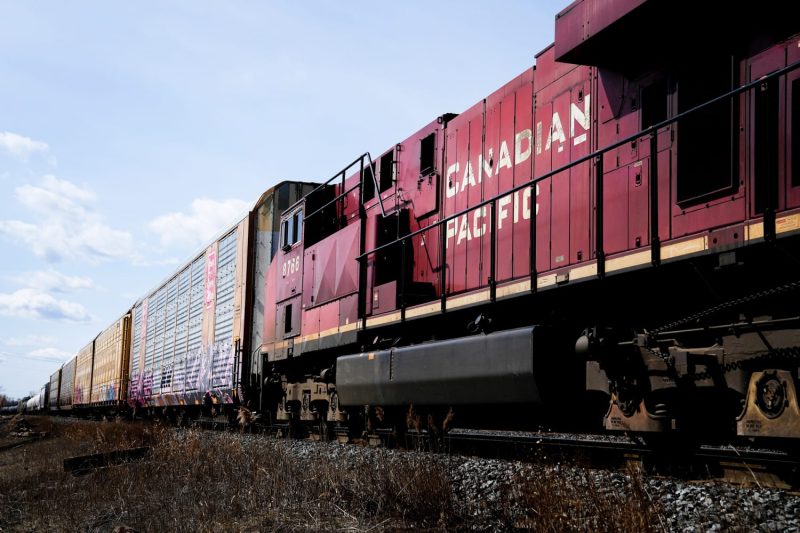The possibility of a work stoppage at Canada’s two largest railroads, Canadian National Railway (CN) and Canadian Pacific Railway (CP), has raised concerns about potential disruptions in the U.S. supply chain. The labor negotiations between the rail companies and the unions represent a critical period that could affect the movement of goods between the two countries.
The impact of a work stoppage on the U.S. supply chain could be significant, given the volume of goods that rely on the efficient operation of these railways. Canadian railways play a crucial role in transporting various commodities, including raw materials, finished products, and agricultural goods, between Canada and the U.S. Any disruptions in this transportation network could lead to delays, increased costs, and potential shortages of goods on both sides of the border.
One of the key concerns surrounding a potential work stoppage is the effect it would have on industries that heavily rely on rail transportation, such as the automotive, manufacturing, and agriculture sectors. These industries depend on the timely delivery of goods to maintain production schedules and meet customer demands. A disruption in rail service could result in production slowdowns, inventory shortages, and financial losses for businesses in both countries.
The complexity of the North American supply chain means that a work stoppage at Canadian railroads could have ripple effects across various industries and regions. Manufacturers may struggle to receive raw materials or parts from suppliers, leading to production delays and potential disruptions in the distribution of finished goods. Retailers could face challenges in restocking inventory and meeting customer demand, especially for products that rely on just-in-time delivery systems.
Moreover, the impact of a work stoppage at CN and CP could extend beyond the immediate transportation sector to affect other industries indirectly. For example, the energy sector relies on rail transport for the movement of crude oil, natural gas, and other energy products. Disruptions in rail service could hinder the supply of energy resources to refineries and distribution centers, potentially affecting fuel prices and energy security in the region.
In light of these concerns, stakeholders on both sides of the border are closely monitoring the labor negotiations between the rail companies and the unions. The outcome of these negotiations will not only determine the immediate operation of the Canadian railways but also have broader implications for the interconnected supply chain network in North America.
In conclusion, the possibility of a work stoppage at Canada’s two largest railroads, CN and CP, raises significant concerns about potential disruptions in the U.S. supply chain. The impact of such a scenario could be far-reaching, affecting various industries that rely on the efficient movement of goods between Canada and the U.S. Stakeholders are keenly observing the labor negotiations and hoping for a resolution that will maintain the uninterrupted flow of goods and prevent any significant disruptions in the supply chain.

